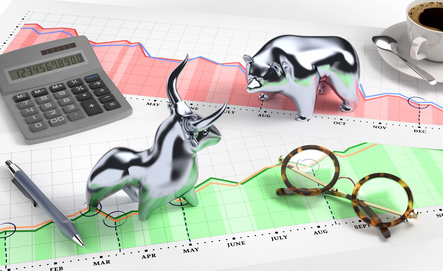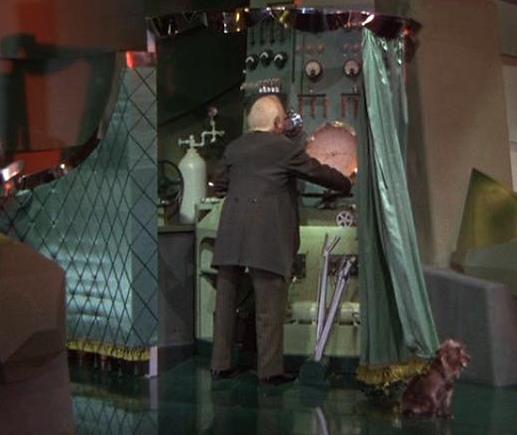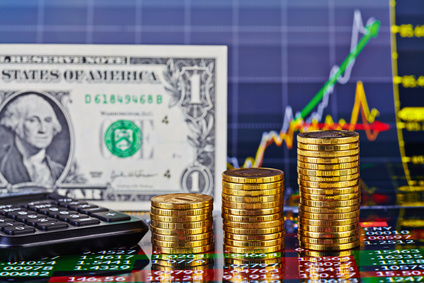Will the Fed raise interest rates? Will gold go up? Will stocks crash?
Inquiring minds want to know! And so do real estate investors.
So we sit down to chat with three of the smartest guys we know…a Bull, a Bear and a Bug (gold that is). And then we discuss what it all means to YOUR real estate investing.
- Visit our Special Reports library.
- Don’t miss an episode of The Real Estate Guys™ radio show. Subscribe to the free podcast!
- Stay connected with The Real Estate Guys™ on Facebook!
The Real Estate Guys™ radio show and podcast provides real estate investing news, education, training and resources that help real estate investors succeed.
Divining the tea leaves of financial markets is an imprecise science at best…and probably much more of an art.
But whether science or sorcery, when you’re busy building a portfolio of assets, liabilities, cash flow and savings, you need to pay attention to a lot of moving parts.
Broadcasting from the New Orleans Investment Conference in (you’ll never guess…) New Orleans, Louisiana:
- Your divine host, Robert Helms
- His imprecise co-host, Russell Gray
- Renowned economist, author and stock guru, Mark Skousen
- Best-selling author, outspoken financial pundit and Fed critic, Peter Schiff
- New Orleans Investment Conference promoter, newsletter publisher and gold guru, Brien Lundin
Each of our guests have been with us before. But in case you’re new to the show, you should know that NONE of them are real estate investors. And for our purposes, that’s a good thing.
 We’re looking for peripheral perspectives on the financial markets which affect us all…no matter which segments we’re invested in. That’s because all these markets are part of a fluid sea of funds which ebb, flow, circulate and mix.
We’re looking for peripheral perspectives on the financial markets which affect us all…no matter which segments we’re invested in. That’s because all these markets are part of a fluid sea of funds which ebb, flow, circulate and mix.
All but the most inexperienced real estate investors understand the bond market sets interest rates. And as you accumulate a portfolio of properties, unless you’re a cash buyer, you’re also accumulating a big portfolio of loans.
So interest rates and the bond markets should be of great interest to you.
Why are interest rates low? Will the Fed raise interest rates?
Some think that the Federal Reserve sets interest rates. That’s not technically true. At least not for mortgages and many other market rates.
But the Fed has a HUGE impact on interest rates through their open market manipulations…er, activities.
The Fed adjusts bank reserve requirements, sets the Federal Funds rate (that’s the one you hear about all the time on the news), and manipulates various and sundry other levers to expand, contract and coerce the costs and motivations of lenders and borrowers.
So watching the Fed is an obsession for many investors. That’s why the Fed is in the financial news all the time.
Right now, the Fed keeps TALKING about raising interest rates. They haven’t done it in 10 years. But they keep talking about.
 Peter Schiff thinks the Fed probably won’t raise rates. He says if they do, they’ll prick bubbles in stocks, bonds and other markets …and expose a phony economic recovery.
Peter Schiff thinks the Fed probably won’t raise rates. He says if they do, they’ll prick bubbles in stocks, bonds and other markets …and expose a phony economic recovery.
What about the stock market? Will stocks go up…or will they crash?
Of course, interest rates affect more than the cost of money. Rates affect how money is used, stored and borrowed.
Companies are borrowing cheap money to buy back their own stock. And why not?
If your company earns anything above the cost to borrow, then every dollar you borrow to buy your own stock makes you a profit. It’s just like when a real estate investor can borrow 4% mortgage money and buy 8% cash flow properties. You’d do that all day long.
Plus, stock buybacks improve a company’s EPS (earnings per share) because they divide the same earnings over less outstanding shares. This can look good to unsophisticated stock investors and make a company look like its sales and profits are growing, when they could actually be shrinking.
Cheap money also empowers mega mergers and leveraged buy outs.
 You’ve probably heard about AT&T and DirectTV, American Airlines and U.S. Airways, Anheuser-Busch and Miller, and the big one currently under consideration between Pfizer and Allegra. And that’s just off the top of our head.
You’ve probably heard about AT&T and DirectTV, American Airlines and U.S. Airways, Anheuser-Busch and Miller, and the big one currently under consideration between Pfizer and Allegra. And that’s just off the top of our head.
These deals need to be financed. Cheap money makes the debt load easier to cover from operational income.
It’s no different than when a real estate investor borrows to buy a property and then pays for the loan with the rents.
Hopefully, the property cash flows at a rate higher than the cost of the funds. So the lower the cost of the funds, the more properties qualify to do a deal.
Now you might choose to go in thin as long as you have a viable plan to increase net operating income. Guys like Ken McElroy do this all the time.
But guys who take over companies do the same thing. And often their plan to increase profit, means cutting back on things like payroll (layoffs) and long term investment (research & development and capital expenditures).
M&A (mergers and acquisition) guys argue the “acquire and fire M.O.” helps make companies more efficient.
Maybe.
Sometimes it makes companies less competitive. Because when you lay off people, you lose intellectual capacity. And when you cut R&D and Cap Ex, you don’t have new products or state of the art equipment and efficiency. Eventually, all this can make you LESS competitive.
But we’re not here to judge. We aren’t that smart. We’re just pointing out what’s going on so you can anticipate and react accordingly.
For real estate investors, it can mean entire employment bases being shut down. When Company A buys Company B, sometimes they shut down an entire campus. Jobs are lost. That affects the local real estate market.
Are any major employers in YOUR market in talks to merge? Pay attention! It could affect the local economy…and YOUR bottom line.
Low interest rates also affect Mom & Pop stock investors…
Right now, low interest rates are forcing people out of savings and into the stock market.
 The stock market is the only place most paper asset investors know to go to try get enough earnings from their savings to live on. Otherwise, they have to eat into the principal.
The stock market is the only place most paper asset investors know to go to try get enough earnings from their savings to live on. Otherwise, they have to eat into the principal.
Of course, if they eat too much principal, they run out of money before they run out of life. This is one of the greatest fears of the HUGE baby boomer generation…which is retiring at the rate of over 10,000 per DAY.
Of course, helping these folks discover how income producing real estate can provide better cash flow, lower taxes, and a long term hedge against inflation is one of the GREATEST OPPORTUNITIES going right now. And with the new law opening up your ability to market to potential investors, there’s never been a better time to get into the syndication business.
 Mark Skousen thinks as long as rates stay low, the stock market will stay strong. And speaking of strong…
Mark Skousen thinks as long as rates stay low, the stock market will stay strong. And speaking of strong…
Why is the dollar strong?
This is SUCH a GOOD question. But before we tackle it, let’s consider what it means.
The “strength” or “weakness” of the dollar can be measured against many things.
If you go to the gas station and can fill up your tank for $20, you might say the dollar is “strong” against gasoline. You can buy a lot of gas for fewer dollars.
But if it takes $200 to fill you tank, you’d probably say the dollar is “weak” against gas. It takes a lot MORE dollars to buy the same gas. Or you could say gas is strong. Or gas went “up”.
The point is that “strength ” is relative. Compared to what?
Right now, many other currencies are even WEAKER. In fact, some countries’ interest rates have gone NEGATIVE. And most other countries’ economic growth is even more anemic than that of the United States.
Of course, the U.S. has a trump card…and it’s not the guy running for President.
The U.S. dollar is still the world’s reserve currency. And U.S. Treasuries, which are denominated in dollars, are considered by most to be a “safe haven” asset.
You’ve probably noticed, there’s been bit of instability in the world. And it’s been going on for awhile. So (allegedly) paper asset investors worldwide are piling into dollars and Treasuries…for safety.
Of course, not everyone thinks dollars and Treasuries are the safest place to be….
Will gold go up?
China and Russia have been dumping dollars and Treasuries and buying gold. Meanwhile, U.S. mint sales are at record highs. Physical inventories are dropping.
 Yet the price of gold FALLS. That’s weird.
Yet the price of gold FALLS. That’s weird.
But actually, gold is only falling when measured in dollars. In terms of other currencies, gold is actually rising.
We know. It’s hard to get your mind around. But we think it makes sense to try. Go back and think about the gas example. When you have to trade more dollars for the same gas, you can say the dollar fell…or you can say gas went up.
Think about what you’re doing by investing…
You’re working at earning or raising dollars to use as down payments. So you’re probably being paid in dollars and saving in dollars, right?
Then you go out and borrow…in dollars…to buy a piece of real estate that will generate income in…dollars.
Along the way, you’ll take in deposits, build reserves, set aside money for contingencies and capital expense…probably all in dollars.
And even if you’re reinvesting by adding more properties, you’re still going to be building up bigger and bigger CASH balances…in dollars.
So now your EXPOSURE to the banking system and the dollar is GROWING.
Therefore, it seems sensible for you to be concerned about the strength of the banking system and the dollar, right?
BUT…you say…what difference does it make? What choice do I have?
GOLD.
Precious metals are an alternative to dollars as a place to store liquid reserves. It’s where people (and countries) go when they’re concerned about the dollar and the banking system.
So we pay attention to gold because it’s an indicator of the strength and direction of the dollar. Make sense?
It used to be good enough to simply watch the PRICE of gold. If it was down, then demand was down. If the price was up, then demand was up. So you could accurately use price to gauge demand.
Not today.
That’s because physical gold prices are impacted by paper derivatives in the futures markets. That is, there are people who buy and sell physical gold. And there are those who buy and sell contracts (paper) which are allegedly backed by gold.
We know. It’s heady stuff. But please don’t gloss over. It’s not as hard as it seems. And it really does matter to your long term financial health. Really.
 We won’t get into all the mechanics of the gold futures markets. This is already a marathon blog (THANKS for sticking with us this far!)…
We won’t get into all the mechanics of the gold futures markets. This is already a marathon blog (THANKS for sticking with us this far!)…
Suffice it to say that when paper traders sell highly leveraged paper contracts they are able to push down the price of gold in both the paper AND the physical markets.
But when the price of physical gold drops, physical buyers show up and claim physical gold. As long as those orders get filled, people trust the paper contracts. The paper guys may not want the physical, just like you may never want all your cash out of the bank.
But the minute you don’t think the bank has the cash to give you, you want it all. Right now. And if you can’t get it, you lose trust in that bank statement you have that says the cash is really there.
Well, when we first started watching the gold market, there was twice as much physical gold in the warehouses and there were about 40 claims on every ounce of physical gold.
Today, the physical inventory is half what it was and the outstanding claims are pushing THREE HUNDRED for each ounce.
This makes us suspicious that the PRICE of gold may not really be “free market”…which means it’s less useful for determining what’s really happening with the dollar.
If the demand for physical market were to exceed the ability of the warehouses to deliver the gold, then the true price of gold in dollars could be revealed.
Going back to our gas example, it means it would take more dollars to buy the same gold. Gold would go “up”. Really what’s happening is the dollar would be “down”.
But we’re just real estate guys and we’re clearly out of our league when commenting on gold.
 Brien Lundin is one of the smartest, most connected gold guys we know. He tells us the gold investors he knows think gold has put in a bottom. Which really means the dollar compared to gold has peaked.
Brien Lundin is one of the smartest, most connected gold guys we know. He tells us the gold investors he knows think gold has put in a bottom. Which really means the dollar compared to gold has peaked.
That would mean gold will be going “up” and the dollar will be going “down”.
If so, it explains why governments (Russia and China in particular) and individual investors are using dollars to buy gold now.
And as if all this wasn’t enough, consider it’s being reported that China’s currency (the yuan) may be about to be included as one of the world’s reserve currencies, joining the U.S. dollar, the British pound, the Euro and the Japanese yen. Of course, the U.S. would need to approve it. Which might explain why China set up its own international bank.
As we discussed in our Real Asset Investing report, this is a trend we’ve been watching develop for several years.
What does it all mean to real estate investors?
Okay, for you marathon readers, let’s try to wrap all this up and put a bow on it.
Interest rates have a big and direct impact on your mortgages, your cash flows, your tenants and the local economies which support your properties.
The Fed’s motivations and maneuverings impact interest rates. And the Fed is influenced by the stock market and the dollar (and vice versa).
Gold is one of a few indicators of the strength and future of the dollar, which has been slowly losing its grip as the world’s reserve currency.
If there is hidden weakness in the U.S. economy and U.S. dollar, rising interest rates and/or a failure to deliver on physical gold shipments could quickly expose it.
The result could be rapidly rising interest rates or a rapidly falling dollar (inflation, i.e., rapidly rising prices).
In any case, you want to be ready for ANYTHING. And dollars, bonds and bank accounts probably won’t be as safe as many think they are.
So we continue to think real assets which serve essential, transcendent needs (shelter, food) in markets with good infrastructure, population, business climate and low costs will be the safest (and probably most profitable) places to be.
The MOST IMPORTANT INVESTMENT you can make right now is…
Your own education and network. Because if things get crazy, you’ll want to see it sooner, understand it better, and be connected to lots of smart people you can collaborate with to navigate a rapidly changing environment.
We know you’d probably like everything to be simple and easy. But that’s not the world we live in today.
Of course, it doesn’t have to be scary or boring. Personally, we go out of our way to create fun and educational events to bring great people together to learn, share, connect and work on a building a brighter future.
Listen Now:
The Real Estate Guys™ radio show and podcast provides real estate investing news, education, training and resources that help real estate investors succeed.













